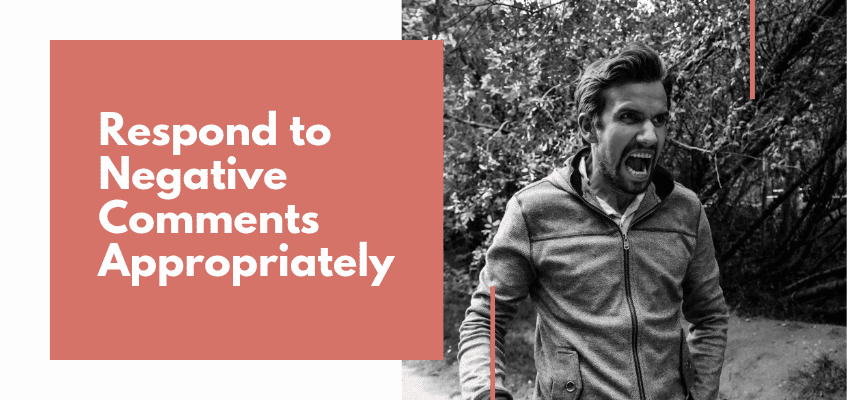Your Guide to a #FailProof Social Media Management
Sim Wan Yong • May 13, 2019
Most big brands have a good grasp of their social media management, but most of us would have come across at least one or two social media pages that were not managed as well as the others.
Our team has took it upon ourselves to find the foolproof social media management strategy, and we're giving it away to our readers right here for free. The best part? This list contains only 7 steps - easy to digest!
Create Your Own #FailProof Social Media Management Strategy with This 7-Steps Guide
Let us just start by giving a disclaimer: These are preventative measures so that your social media pages are not going to ruins - there are many more measures that you can take, such as by providing good content management, timely interactions and much more.
Regardless, these tips are applicable for pretty much any of the social media platforms that you are using - Facebook, Instagram, Twitter, LinkedIn, and much more. Without further ado, let's get started!
1. Respond to Negative Comments Appropriately
Trolls prowl on social media platforms. So do individuals who love commenting just for the sake of posting a comment. Worse still, these platforms are where you can freely express your anger and disappointment towards a brand or an organization.
When we are attacked, our first response is usually to attack back - but is not the wise course of action to take! Have a clear crisis-mitigation procedure in place that you can carry out when negative comments or feedbacks flood your page.
Respond with empathy to show your page users that you understand their frustration, and when you post your replies, ensure that it is a response that will reflect well upon your establishment. Never retort in anger.
2. Stay Transparent & Honest
Chances are that you're a Facebook user. If that's true, then the chances are also high that you have seen the fake Facebook accounts. You know the ones - no profile picture, no posts and no information.
Never try to fake comment replies, responses or reviews with bot accounts, or worse, these fake customer accounts that you make yourself. Customers are smart, and it doesn't take much to figure out that you're using a fake account.
Take extra care to respond to comments whether they are good or bad, and don't delete or ban users with negative comments if they are not of a malicious nature. Also, it won't hurt to be transparent about your company policies even on your social media.
3. Always Check Your Facts
This should be a common knowledge or at the very least, something that you do without needing to be asked. Check that trending topic, hashtag or event - what is it really about? The lack of effort to click into the trending topic for a 2-minute reading could be the one difference between tagging that event to promote your brand or to burn it down.
Not sure where to start? Start by checking if you are publishing a social media post from the right account, and whether you are posting a public status or privately to a handful of customers. If there are way too many accounts, you can even consider using different browsers or tools to manage your accounts!
4. Be Sensitive to Your Content
Be tactful. You don't want your 'bold marketing strategy' to go wrong and gain your page waves and waves of new haters. While it varies with different cultures, there are some topics that simply belong to the no-go zone regardless of where you are posting from.
Here's a clearer example. Don't mix politics, racial and gender issues into your business page for starters. Never joke about someone's death, or use it to promote your own business. Anything that might come off as rude or inconsiderate - just don't post it.
If you aren't sure if what you're about to post might be considered as rude, you can even ask a few other staff around you. If you still aren't sure, chances are that it's better not to post it at all.
5. Stay Within Your Brand Tracks
Surely you would have a brand tone or content pillar that represents your brand more accurately. Whenever you post something, take some time to reflect on the posts' content. Does it follow your company branding? Is it relevant to your company direction?
Playing the humor card every once in a while could be good for some post interaction, but if you are a professional insurance agency posting a quiz for readers to find out which Subway sandwich they are, it just wouldn't make sense, would it?
What you can do instead is to focus on creating valuable content that your page audience would appreciate, which is also relevant to your business at the same time. Build those content pillars, and then you can build your content.
6. Let Engagements Happen Naturally
You sure you want to go down that '1 like 1 prayer' route? Probably not. Don't use emotions or guilt to get your page users to like, comment or share your posts. In fact, don't beg for attention with those posts just so that you can increase your page and post engagements.
Once in a while, you'd come across pages with posts saying, "For every post engagement, we will donate $X to X." We honestly thought that the concept of doing good without being asked would be more deeply rooted in individuals and organizations by now. It's about time to stop this whole concept of social charity.
After all, these post engagements aren't of high quality. It's just bumping up the numbers for your page, but will they ever become converting customers to your business? Focus instead on creating posts that you customers will find informative and helpful, and let them engage with your content when they want to.
7. Manage Access to Your Social Media Account
Every once in a while, we would receive inquiries from business owners asking if they can retrieve access to their Facebook page, which had only one admin - and that admin has been working elsewhere for a good amount of time now. This problem could have been solved if several individuals have access to these accounts instead.
Although, on a second note, you might want to be careful about who you want to give the access to. After all, when you give admin access to someone, they can post anything they want on your pages, and if they are not careful, they might accidentally share an irrelevant status or post on your page instead.
Always have a few other staff at hand who have the access to the social media accounts, even if they might not be using the login credentials immediately. Ensure that everyone with access are responsible for the social activities, comments and inbox messages too!
So, now that you know what you can do to ensure a good social media management, you can move on to creating effective social media content that will drive valuable engagements and conversoins instead!









